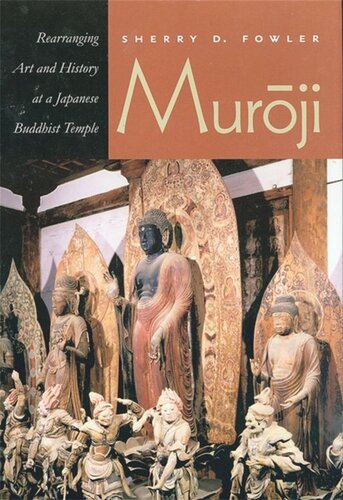

Most ebook files are in PDF format, so you can easily read them using various software such as Foxit Reader or directly on the Google Chrome browser.
Some ebook files are released by publishers in other formats such as .awz, .mobi, .epub, .fb2, etc. You may need to install specific software to read these formats on mobile/PC, such as Calibre.
Please read the tutorial at this link: https://ebookbell.com/faq
We offer FREE conversion to the popular formats you request; however, this may take some time. Therefore, right after payment, please email us, and we will try to provide the service as quickly as possible.
For some exceptional file formats or broken links (if any), please refrain from opening any disputes. Instead, email us first, and we will try to assist within a maximum of 6 hours.
EbookBell Team

4.8
54 reviewsMurōji, a magnificent temple founded in the eighth century, is known both for its dramatic location and the exceptional quality of its ritual objects and art dating from the ninth and tenth centuries of the Heian period. Sherry Fowler makes extensive use of primary sources to explore the circumstances surrounding the creation and function of the temple’s main images and considers why major works of early Heian sculpture were housed in such a remote mountain setting. Employing a multifaceted approach that looks at Murōji’s art and architecture in socio-political context, she explores the establishment of the temple, its role in the religious life and power structure of the region, and the ways in which the temple reconfigured its early history to suit its later circumstances. Emerging from Fowler’s study are pervasive themes relating to worship and practice at Murōji that highlight plurality of practice (of different schools of Buddhism as well as Shinto); flexibility of practice and its impact on sculptural icons; the relationship of Murōji to other temple/shrine complexes; and the association of the temple with women’s worship.